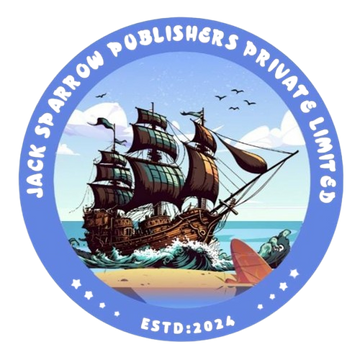Conference Guidelines for Authors , Editors and Participants

Conference Guidelines for Authors , Editors and Participants
Conference proceedings are a vital record of academic gatherings, preserving and disseminating the research presented at conferences. To ensure quality, visibility, and integrity, Jack Sparrow Publishers sets clear guidelines for both Authors (who submit their work) and Editors/Organizers (who manage and publish the proceedings) and Participants must follow the publisher’s guidelines.
Guidelines for Authors


Authors must submit papers/abstracts strictly using the official conference template.
Types of submissions:
Abstracts (250–350 words).
Full Papers (6–10 pages, unless specified
otherwise).
Submissions should include:
Title of the work.
Author(s) full name(s), affiliations, ORCID ID (if available).
Contact details (corresponding author’s email).
3–6 Keywords.


Font: Times New Roman, 12 pt.
Line spacing: single, justified alignment.
Figures, tables, and graphs must be clear, labeled, and cited.
References should follow the prescribed citation style (APA/IEEE/MLA, depending on
the conference).


Submissions must be original , unpublished work and plagiarism-free (checked with plagiarism detection tools).
Authors should declare any Conflicts of Interest.
All papers will be checked for Plagiarism.
Proper attribution and Proper citations and acknowledgements are sources are mandatory.
Duplicate submissions to multiple conferences/journals are prohibited.
Authors must sign Copyright/Licensing agreements.
All full papers undergo 7 Types Peer Review (usually Double-Blind).
Authors may be asked to revise based on reviewer/editor feedback.
Revisions must be submitted within the given deadline.
Authors must respond to reviewers’ comments and revise accordingly.
Only accepted and revised papers will be published.


Non-presented papers may not be included in the final proceedings.
Papers may be published under open access or restricted access, as per conference policy.


Accepted works will be included in the conference proceedings (abstract book or full proceedings).
Proceedings are published with an ISBN/ISSN.
Full papers may receive DOIs, making them citable.
Proceedings may be indexed in Scopus, Web of Science, CrossRef, Google Scholar, and other databases (depending on eligibility).


Authors must submit papers/abstracts strictly using the official conference template.
Types of submissions:
Abstracts (250–350 words).
Full Papers (6–10 pages, unless specified
otherwise).
Submissions should include:
Title of the work.
Author(s) full name(s), affiliations, ORCID ID (if available).
Contact details (corresponding author’s email).
3–6 Keywords.


Font: Times New Roman, 12 pt.
Line spacing: single, justified alignment.
Figures, tables, and graphs must be clear, labeled, and cited.
References should follow the prescribed citation style (APA/IEEE/MLA, depending on
the conference).


Submissions must be original , unpublished work and plagiarism-free (checked with plagiarism detection tools).
Authors should declare any Conflicts of Interest.
All papers will be checked for Plagiarism.
Proper attribution and Proper citations and acknowledgements are sources are mandatory.
Duplicate submissions to multiple conferences/journals are prohibited.
Authors must sign Copyright/Licensing agreements.
All full papers undergo 7 Types Peer Review (usually Double-Blind).
Authors may be asked to revise based on reviewer/editor feedback.
Revisions must be submitted within the given deadline.
Authors must respond to reviewers’ comments and revise accordingly.
Only accepted and revised papers will be published.


Non-presented papers may not be included in the final proceedings.
Papers may be published under open access or restricted access, as per conference policy.


Accepted works will be included in the conference proceedings (abstract book or full proceedings).
Proceedings are published with an ISBN/ISSN.
Full papers may receive DOIs, making them citable.
Proceedings may be indexed in Scopus, Web of Science, CrossRef, Google Scholar, and other databases (depending on eligibility).
Guidelines for Editors / Conference Organizers


Draft and circulate the Call for Papers (CFP).
Establish the Editorial Board and Review Committee.
Ensure fair and transparent peer review.
Reject papers that fail ethical or quality standards.


Maintain confidentiality and integrity in the review process.
Communicate reviewer feedback clearly to authors.


Assign qualified reviewers with expertise in relevant fields.
Maintain confidentiality during the review process.
Reject submissions that fail ethical or quality standards.


Coordinate with Jack Sparrow Publishers for ISBN/ISSN and DOI registration.
Establish a Scientific Committee and Editorial Board.
Provide clear submission guidelines and templates to authors.
Set timelines for submission, review, revision, and acceptance.


Maintain detailed review records for transparency.
Ensure that only high-quality, original contributions are accepted.


Collect final, camera-ready versions of all accepted papers.
Verify metadata (author names, affiliations, keywords, abstracts).
Submit manuscripts for typesetting and formatting.
Proofs must be shared with authors for corrections before final release.


Ensure consistency in formatting and metadata.
Work with Jack Sparrow Publishers on typesetting and proofing.


Register DOIs for each paper (if applicable).
Deposit proceedings in publisher repositories and ensure long-term digital archiving.


Ensure diversity and fairness in reviewer/editorial selection.
Report and address any instances of plagiarism or unethical practices.


Draft and circulate the Call for Papers (CFP).
Establish the Editorial Board and Review Committee.
Ensure fair and transparent peer review.
Reject papers that fail ethical or quality standards.


Maintain confidentiality and integrity in the review process.
Communicate reviewer feedback clearly to authors.


Assign qualified reviewers with expertise in relevant fields.
Maintain confidentiality during the review process.
Reject submissions that fail ethical or quality standards.


Coordinate with Jack Sparrow Publishers for ISBN/ISSN and DOI registration.
Establish a Scientific Committee and Editorial Board.
Provide clear submission guidelines and templates to authors.
Set timelines for submission, review, revision, and acceptance.


Maintain detailed review records for transparency.
Ensure that only high-quality, original contributions are accepted.


Collect final, camera-ready versions of all accepted papers.
Verify metadata (author names, affiliations, keywords, abstracts).
Submit manuscripts for typesetting and formatting.
Proofs must be shared with authors for corrections before final release.


Ensure consistency in formatting and metadata.
Work with Jack Sparrow Publishers on typesetting and proofing.


Register DOIs for each paper (if applicable).
Deposit proceedings in publisher repositories and ensure long-term digital archiving.


Ensure diversity and fairness in reviewer/editorial selection.
Report and address any instances of plagiarism or unethical practices.
Guidelines for Participants


Attend sessions punctually and actively participate in discussions.
Maintain professional and respectful conduct throughout the event.


Listeners: Engage in Q&A, provide constructive feedback.
Session Chairs/Moderators: Ensure smooth flow of presentations and discussions.


Acknowledge the work of others during discussions.
Ensure data privacy and confidentiality in shared research.


Enhance networking and collaboration opportunities.
Receive conference certificates, proceedings access, and indexing benefits.


Uphold standards of academic honesty and fairness.
Avoid conflicts of interest in submissions, reviews, or presentations.
Ensure all content is free from plagiarism and bias.
Follow COPE (Committee on Publication Ethics) guidelines.


Call for Papers (CFP) issued.
Authors prepare and submit work via template.
Editors assign reviewers → Peer Review.
Reviewer feedback → Authors revise.
Editorial decision (Accept / Revise / Reject).
Authors submit final (camera-ready) papers.
ISBN/ISSN assigned; DOIs registered (if applicable).
Final proceedings compiled, proofed, and published.
Indexing submission (Scopus, WoS, CrossRef, Google Scholar, etc.).


Attend sessions punctually and actively participate in discussions.
Maintain professional and respectful conduct throughout the event.


Listeners: Engage in Q&A, provide constructive feedback.
Session Chairs/Moderators: Ensure smooth flow of presentations and discussions.


Acknowledge the work of others during discussions.
Ensure data privacy and confidentiality in shared research.


Enhance networking and collaboration opportunities.
Receive conference certificates, proceedings access, and indexing benefits.


Uphold standards of academic honesty and fairness.
Avoid conflicts of interest in submissions, reviews, or presentations.
Ensure all content is free from plagiarism and bias.
Follow COPE (Committee on Publication Ethics) guidelines.


Call for Papers (CFP) issued.
Authors prepare and submit work via template.
Editors assign reviewers → Peer Review.
Reviewer feedback → Authors revise.
Editorial decision (Accept / Revise / Reject).
Authors submit final (camera-ready) papers.
ISBN/ISSN assigned; DOIs registered (if applicable).
Final proceedings compiled, proofed, and published.
Indexing submission (Scopus, WoS, CrossRef, Google Scholar, etc.).

